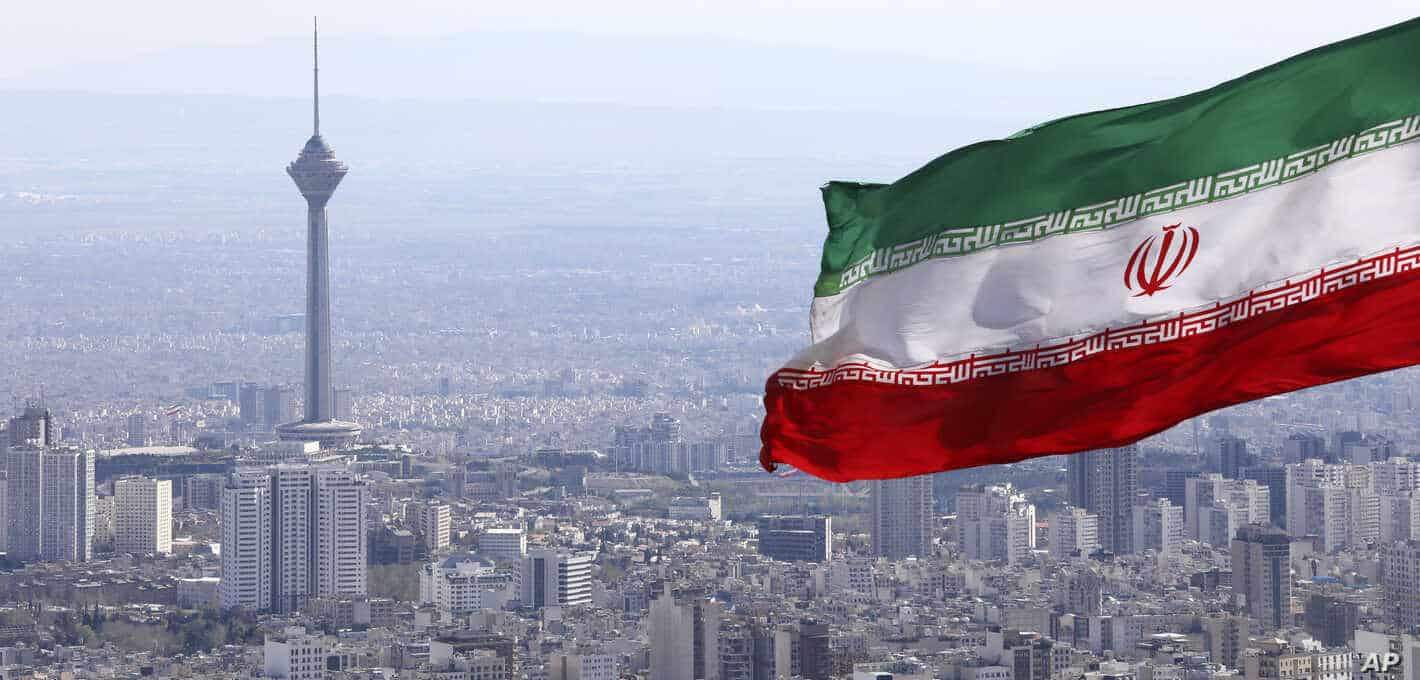Latest Iranian Plotting Worrisome, Not Surprising, US Officials Say

Recent intelligence suggesting Iranian-backed forces in Iraq are actively plotting to hit U.S. troops may have stirred a new war of words between Washington and Tehran on social media, but it has done little to shock U.S. defense officials.
U.S. President Donald Trump first shared word of the latest intelligence in a tweet Wednesday, warning of a “sneak attack.”
Later, he told White House reporters the intelligence was “very good,” and that Iranian leaders would be wise to heed U.S. warnings.
“We're just saying, ‘Don't do it. Don't do it,’” Trump said. “It would be a very bad thing for them if they did it.”
While not commenting on the specific intelligence that led to Trump’s tweet, current and former U.S. officials say the idea Tehran would use proxy forces to lash out at this time would be consistent with the Iranian regime’s playbook.
Iran’s official military has been “pretty effectively deterred,” a U.S. defense official told VOA on condition of anonymity, pointing to a lull in missile attacks launched from Iranian soil and to Tehran’s apparent decision to stop harassing ships passing through the Strait of Hormuz.
The official, however, cautioned that U.S. strikes against Iranian-backed militias in Iraq, like Kataib Hezbollah, have done little to lessen a “threat stream” from Iranian-backed militias that has been rising for weeks.
"The threat remains very high," U.S. Central Command’s Gen. Kenneth McKenzie told reporters following a series of U.S. precision strikes last month against militia depots in Iraq housing advanced Iranian weapons.
"Tensions have actually not gone down," McKenzie cautioned at the time. "I still think they [Iran] are actively seeking ways to achieve destabilization."
And even without the guidance of former Iranian Quds Force Commander Qassem Soleimani, who oversaw militia activity in Iraq until his death in a U.S. airstrike in January, Iran’s proxies remain a dangerous tool for Soleimani’s replacement, Ismail Qaani.
“Qaani may lack the iconic stature and relationship enjoyed by Qassem Soleimani, but this doesn’t mean that the Quds Force won’t continue to be effective,” said Norman Roule, a former national intelligence manager for Iran in the Office of the Director for National Intelligence. “Qaani will draw upon the same cadre of experienced senior Quds Force officers – many of whom have deep experience in the region.”
Some analysts add that, in just the past few weeks, Iranian-backed militias have become even bolder, seeking to draw attention to their activities.
“Iran’s proxies in Iraq are making a show out of their preparations for war,” said Katherine Lawlor, a Middle East research assistant at the Washington-based Institute for the Study of War.
As an example, Lawlor said Kataib Hezbollah last week claimed to have conducted “a large scale ‘military exercise’ in which thousands of its members purportedly practiced repelling U.S. air and ground assaults with live fire.”
And just days after the March 12 airstrikes, U.S. officials blamed Kataib Hezbollah for launching a series of rocket attacks against Iraqi bases housing U.S. and coalition troops.
Kataib Hezbollah, while praising the rocket attacks, denied any involvement. But it has continued to taunt the U.S.
“This fool Trump, or one of his people, come out every other day with threats directed at the Islamic Resistance in Iraq, especially against Hezbollah Brigades,” the group said in a statement Thursday. “We warn [the Trump administration] from being involved in any aggressive act against our patient people.”
But the group promised U.S. forces preparing to leave would not be harmed.
“We assure that these forces will not be killed if their withdrawal continues from all over Iraq,” the statement said.
U.S. military officials said they were aware of the statement but declined to comment.
Hours earlier, Iranian Foreign Minister Javad Zarif also pushed back against U.S. concerns, warning President Trump on Twitter, “Don’t be mislead (sic) by usual warmongers” while adding Tehran “only acts in self-defense.”
Analysts, like Phillip Smyth at the Washington Institute for Near East Policy, see such messaging as a ploy.
“They [Iran and its proxies] see an opportunity they can take advantage of because the Americans are kind of wrapping up into themselves,” he said, noting the recent U.S. withdrawal from several smaller bases in Iraq as well as efforts to cope with the coronavirus pandemic at home.
“Historical events have shown us that they’ll throw things out there like this and say, ‘We’re totally willing to negotiate,’ but they don’t really act on it,” Smyth said.
Iran and its proxies may also see the U.S. as handcuffed by the political situation in Iraq, where Prime Minister-designate Adnan al-Zurfi, seen by some as relatively pro-American, is running out of time to form a government.
“Any U.S. strikes are probably going to doom that,” said Gil Barndollar, a senior fellow at the Washington-based Defense Priorities. “The last thing we want to do is have a guy who is potentially sympathetic to U.S. interests and undermine his chance to lead the country through killing Iraqis, whether militiamen or even actually uniformed Iraqi police and army as has happened in past U.S. strikes.”
Photo: AP
Link: https://www.voanews.com/middle-east/latest-iranian-plotting-worrisome-not-surprising-us-officials-say











